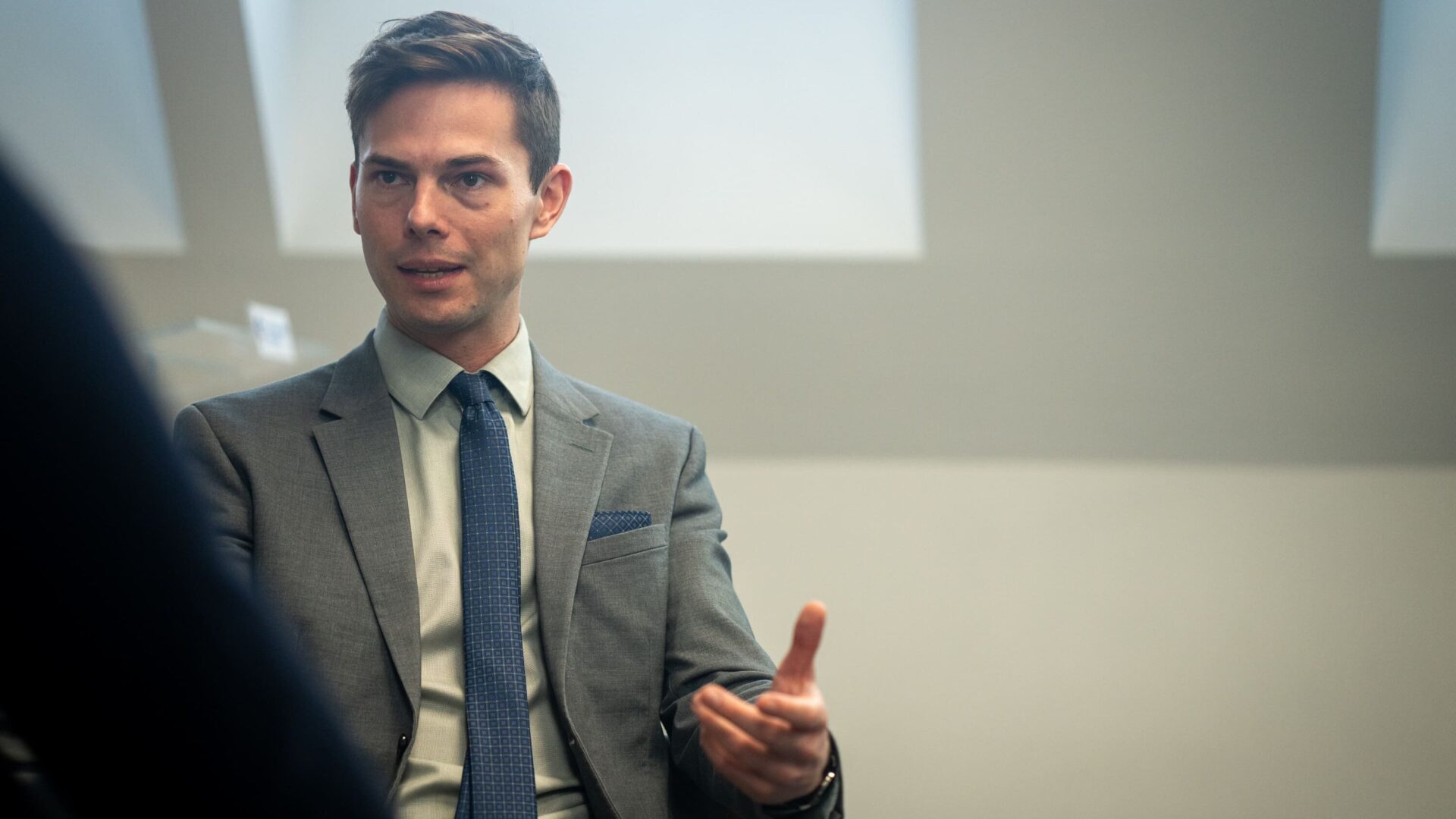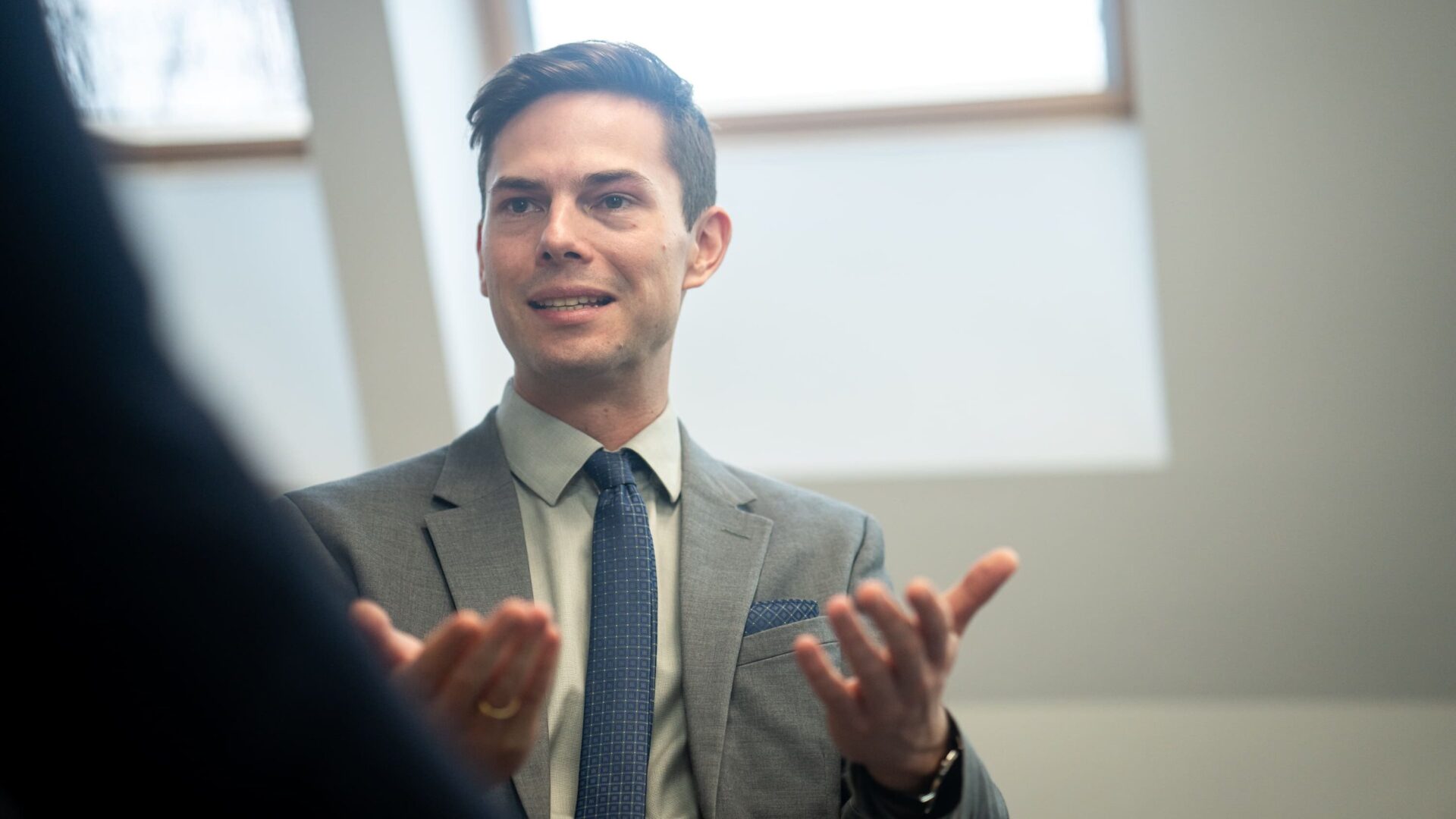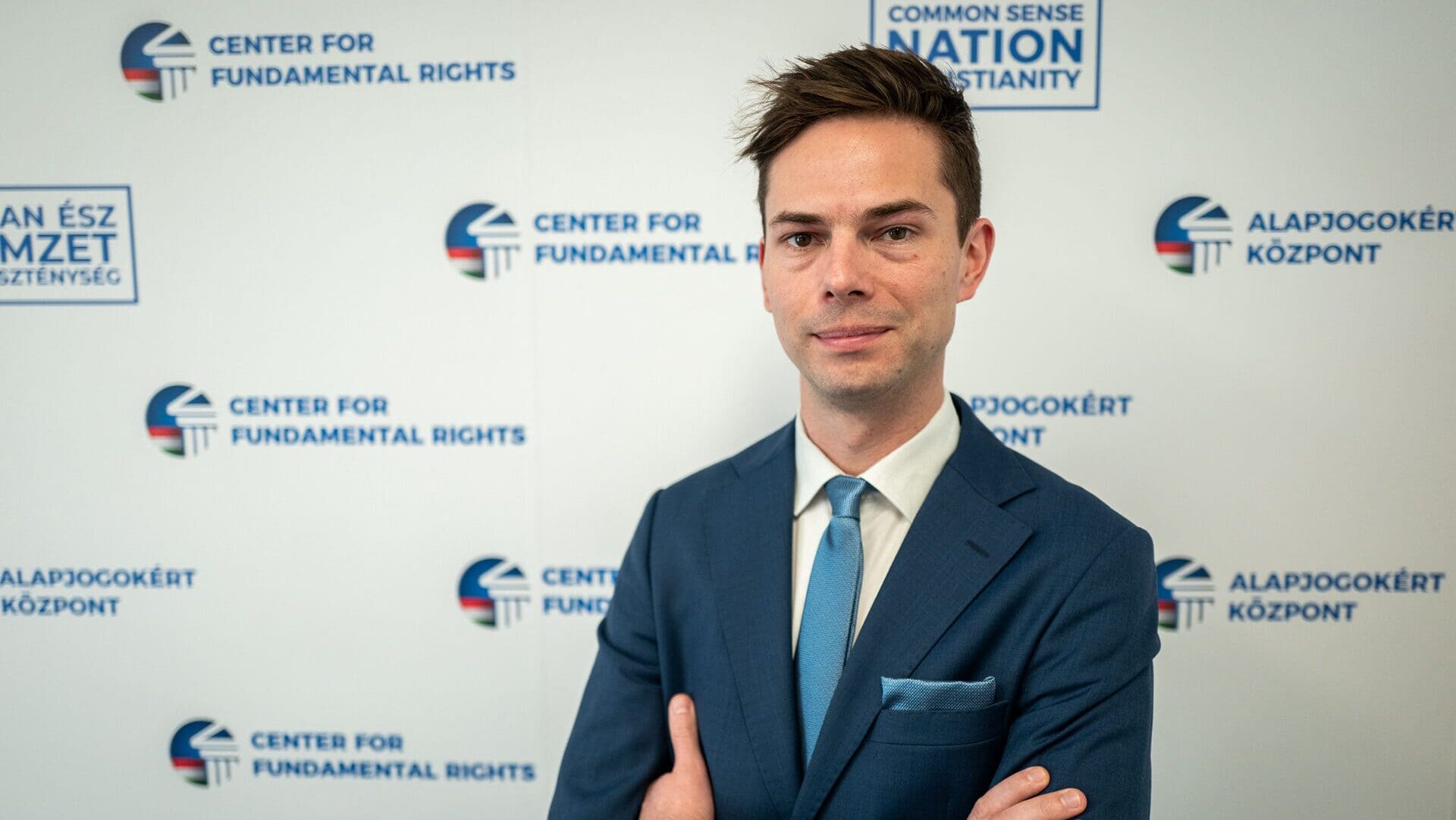Sébastien Meuwissen is a Visiting Fellow at the Center for Fundamental Rights. He is a graduate in journalism and social communication of IHECS (Brussels). Mr Meuwissen has extensive political experience having worked among others in the European Parliament, the Polish Sejm and the Chancellery of the Prime Minister of the Republic of Poland.
***
Let us start with a personal question. What is your background?
I am a Belgian-Polish graduate in journalism and social communications of the Institute for Higher Studies in Social Communications (IHECS) in Brussels. I previously worked for Polish MEP Jacek Saryusz-Wolski in the European Parliament and as an advisor for Polish MP Marek Kuchciński while he was Chair of the Foreign Affairs Committee of the Polish Sejm and later Head of the Chancellery of PM Mateusz Morawiecki. I then served as Communications Director of the Warsaw-based Ordo Iuris Institute for Legal Culture.
What inspired your decision to relocate to Budapest? How do you perceive your role as a Visiting Fellow at the Center for Fundamental Rights?
I moved to Budapest for private and professional reasons simultaneously. Married to a beautiful Hungarian lady and proud father of a young son, the timing had come for me to take on a new challenge. Budapest is a wonderful city and a vibrant political hub. It is no coincidence that it is precisely here that the Center for Fundamental Rights organizes the largest conference of conservatives in Europe, namely CPAC Hungary. With the use of my multicultural background and language skills, I aspire to be a bridge-builder with like-minded organizations and policymakers across the world. My experience in the corridors of Brussels provided me with a better understanding of the dynamics in place when it comes to the functioning of the EU. The same can be said about the time I spent in Warsaw, at the heart of Polish politics. By leveraging my know-how and networks, I vow to help The Center achieve its ambitious goals. At the Center for Fundamental Rights, one of my key areas of research will be to expose the globalist playbook in Warsaw.
Conservatives in Poland and beyond are denouncing a crackdown on democracy and the rule of law taking place under the Donald Tusk government. Is it indeed taking place? If yes, to what extent? Could you provide some examples?
What is currently taking place in Poland is a complete crackdown on the very fundamentals of a free and democratic society and the Constitution. In just a few weeks, the left-liberal majority led by Donald Tusk proceeded to a violent takeover of the public media, a series of political trials, a blacklisting of Christian and patriotic organizations, an unprecedented attack on the judiciary, a violent pacification of peaceful protesters, and revolutionary propositions in the field of education.

The extent of the violations of the law is so blatant that they would require a lengthy and detailed explanation. Please keep in mind that the examples I just mentioned are only a fraction of the problem. The least that can be said is that the Polish government is highly hypocritical when claiming it is ‘depoliticizing’ key institutions. We are witnessing violent takeovers of important state positions and arbitrary firings every week. Many Polish observers rightly claim that this situation makes Poland currently look like a ‘banana republic’.
Did the reaction of the EU mainstream (or the relative lack of it) surprise you?
Most of the EU mainstream – with some rare exceptions – not only turns a blind eye to these abuses but some have even encouraged Tusk to go further in his malign process of “bringing back democracy”. For years, the EU criticized Poland for “systemic” violations of the rule of law, leading to the withholding of €137 billion in funds, only to release them shortly after a government with similar views came into power. It is no secret that the withholding of these funds had in fact little to do with actual rule of law violations but constituted a form of politically motivated blackmail. So I am by no means surprised about the way Tusk’s allies welcomed his recent comeback to power and the subsequent scandalous actions he has undertaken. I also believe that to a large extent, many observers do not realize the historical scale of what we are witnessing in Poland since December 2023. And I mean that of course in the negative sense of the term. Have similarly authoritarian measures been taken since communism collapsed? I doubt it.
Several important elections are coming up in Poland shortly. What is at stake?
Indeed, after the local elections of 7 April, there will of course be the European elections in early June. The most important upcoming election in Poland is going to be the presidential election of 2025. For now, the president is Andrzej Duda, who is close to PiS and who plays an essential role with his veto right amid the left-liberal storm which took over the country.
Duda will not be taking part in the race as he is serving his second and therefore last term in office. This means that the right-wing side of the political scene needs to find a suitable candidate as soon as possible. If PiS or the conservatives broadly speaking fail to do so, we would get back to the situation of the years 2010–2015, when virtually all the relevant layers of society were under the control of the liberal forces.
How would you assess the situation of the conservative camp? Is there a way out from the current negative trend? What can we expect?
PiS won the last legislative elections with a significant margin, exceeding 35 per cent and finishing more than four percentage points in front of its main challenger, the Civic Coalition (KO), which approached 31 per cent. It was the first time since the regime change that a political party won three consecutive elections. This showed that despite mistakes which have been made during PiS’s eight years in power and during the campaign, nearly 8 million Poles still endorse the camp led by Jarosław Kaczyński. It is however the challenges awaiting conservatives overall in Poland that are the most striking as of Spring 2024. A significant crisis currently shakes PiS due to rising internal tensions. The aftermath of the presidential election in the summer of 2025 could prove a pivotal moment concerning the future of PiS.

An optimistic scenario is that the coming years in opposition would be used by conservative forces in Poland similarly to what Viktor Orbán and his camp did during the years 2002–2010 spent in opposition. As we know, Fidesz came back stronger than ever and has retained remarkably high levels of support among the Hungarian population for nearly 15 uninterrupted years. These are lessons that should be learned also by the Polish Right.
What strategies can conservative groups and institutions employ in Poland and internationally to foster more efficient cooperation?
The very conversation we are having is an example of that. The Hungarian Conservative provides international readers with the Hungarian point of view on key issues from by publishing in English. The same can be said about the activities of the Center for Fundamental Rights and other Hungarian conservative institutions. The translation of books and articles, the sharing of expertise, the organization of seminars, conferences, summer schools, debates etc. All these efforts are critical. CPAC Hungary is the ultimate example of that. It encompasses what has been lacking for conservatives across Europe: a regular networking opportunity, the exchange of know-how and mutual support among like-minded international partners.
To end on a light tone, what is your view on Hungary and Hungarians as Belgian Pole? Also, is the Hungarian language as difficult as many claim it to be?
The best formulation I came up with to describe Hungarians is ‘friendly complainers’ and I think that says it all. As a lover of history and old maps, I am full of respect for the rich heritage of this nation. When it comes to the language, I approach its learning as a game rather than a burden. Besides being obviously difficult, I find the Hungarian language enjoyable and aspire to quickly reach a decent level. Happily for me, I have been told I am on the right track.








